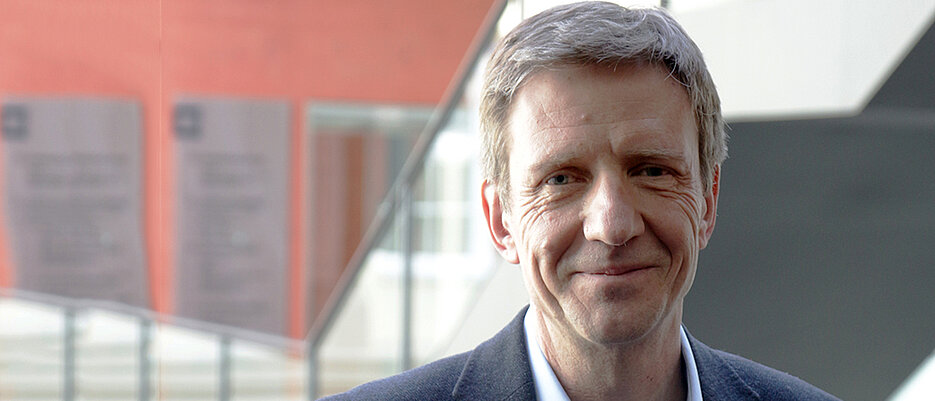ERC Advanced Grant for Thomas Rudel
04/01/2019Professor Thomas Rudel receives a high-ranking award from the European Research Council. The microbiologist will receive 2.5 million euros for a new project to investigate pathogenic Chlamydia.

Chlamydia is the main cause of venereal diseases in Germany. These sexually transmitted bacteria can cause inflammations in the urogenital tract. If they are detected at an early stage, the pathogens can be combated well with antibiotics. If the infection is not treated, it can cause infertility in women. In pregnant women the pathogen may be transferred to the child.
More than 131 million people worldwide are infected with Chlamydia. The biggest problem here is that the infection usually progresses without noticeable symptoms. It therefore very often goes unnoticed – this facilitates the further spread of the pathogen and may lead to severe or chronic disease courses such as cervical and ovarian cancer.
How can the pathogen escape the human immune system and thus suppress the symptoms of the infection? The Würzburg-based Chlamydia expert Professor Thomas Rudel and his team have discovered this. Rudel has held the Chair of Microbiology at the Biocenter of Julius-Maximilians-Universität Würzburg (JMU) in Bavaria, Germany, since 2008.
Pathogens hide in immune cells
Chlamydia specifically switch off a special group of immune cells in the human body, the so-called polymorphic nuclear leukocytes (PMN). This makes these immune cells virtually "blind" to Chlamydia. In addition, they also become insensitive to other stimuli. This in turn increases the probability that other infectious pathogens have an easier game to play.
"The Chlamydia secrete an enzyme that paralyses the immune cells," says Professor Rudel. "In addition, they penetrate the immune cells and multiply there. How they reprogramme these normally short-lived cells into host cells for their long-term purposes is still completely unclear," Rudel states.
Focus on new therapeutic approaches
Rudel now wants to get to the basis of the mechanism of this reprogramming with millions in funding: The European Research Council (ERC) has awarded him one of the prestigious Advanced Grants. The award comes with prize money of 2.5 million euros. Ideally, the project will lead to new therapeutic approaches for freeing the immune system from its "Chlamydia blindness".
The ERC project "Neutrophil – Chlamydia Interactions at the Crossroad of Adaptation and Defence" is scheduled to run for five years. The prize money will be used, among other things, to finance five positions for postdocs, doctoral students and technical staff.
ERC Advanced Grants
Advanced Grants are awarded by the European Research Council to scientists who have established themselves at the top of the research community with outstanding achievements. With the prize money, they can drive innovative projects forward.
A total of 2,052 Advanced Grant projects were submitted to the ERC in the current application round. Eleven percent of these were approved, as announced by the Research Council at the end of March 2019. This time, most of the grants (47) went to Great Britain, followed by Germany with 32 in second place and France with 31 in third place.
Career of Thomas Rudel
Thomas Rudel, born 1962 in Winnenden, Germany, has held the Chair of Microbiology at JMU since 2008. He studied biology at the University of Tübingen and did his doctoral thesis at the Max Planck Institute of Biology in Tübingen in 1994.
After a postdoctoral stay at the Scripps Research Institute in San Diego, USA, Rudel joined the Max Planck Institute for Infection Biology in Berlin in 1997 as group leader. He habilitated at Freie Universität Berlin in 2001 and became professor two years later. Until he moved to Würzburg, he researched and taught in Berlin at the Max Planck Institute for Infection Biology and the Freie Universität.
Weblinks
Website Professor Thomas Rudel
Contact
Prof. Dr. Thomas Rudel, Chair of Microbiology, Biocenter of the University of Würzburg, T +49 931 31-84401, Thomas.Rudel@biozentrum.uni-wuerzburg.de






